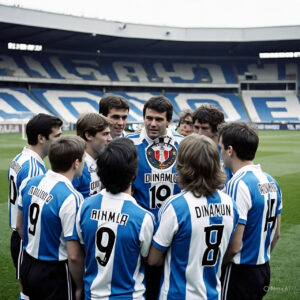
William Frederick Gibbons, also known as Billy, the main guitarist for ZZ Top, was born in Houston, Texas, on December 16, 1949. For more than 50 years, he has shaped a generation of boogie-woogie rock fans who love Les Paul and sport long beards.
His legacy is unparalleled, his riffs famous, and his solos unforgettable. Among the albums that have endured over time are Tres Hombres (1973), Tejas (1976), Eliminator (1983), and Afterburner (1985). Songs like “La Grange,” “Pearl Necklace,” “Cheap Sunglasses,” and “Sharp Dressed Man,” which are all characterised by Gibbons’ distinctive blues-rock badassery, are likely familiar to anyone who has listened to FM radio for any length of time.
Even though bassist Dusty Hill passed away in 2021 and ZZ Top hasn’t produced new music since 2012’s La Futura, Gibbons is still performing live. However, there is hope that the Texas legends will still put out another record with long-time drummer Frank Beard still supporting Gibbons and guitar tech turned bassist Elwood Francis joining the group.
Gibbons has been performing on stage across 2024 in the interim. Alongside fellow iconic rockers Lynyrd Skynyrd, ZZ Top co-headed a journey. Beyond that, Gibbons is not worrying about anything and is taking things day by day. “The legacy stands as providing the soundtrack to having a good time and staying at it for more than five decades,” according to him.
Regarding the future, Gibbons informs Goldmine in his usual enigmatic manner: “The band’s transformations are continuous across the ages. They keep things interesting, therefore we like them. Speaking of vibrant, Elwood deserves special recognition! “Our main man with the new ‘bottom of the top.'”
Furthermore, Elwood has been a devoted fan for more than thirty years and is a fantastic player who truly knows his business. He has always lived by the ZZ ethos: do it, do it well, and keep doing it. He has the feel and the intuition. He skilfully stepped up to the challenge, having such dusty shoes to fill. That’s the place to be!”
GOLDMINE: When you were growing up in Texas, what lessons did you learn the most about playing the guitar?
BILLY GIBBONS: The word is enticing. From the back-alley joints sprang contemporary sounds. With thrilling creative expressions emerging from the shadows, they radicalised the auditory terrain and ultimately tore an unanticipated shift. There were enthralling times ahead.
Not a moment too soon, its optimism burst forth because you could say, “Stand back, Jack, it’s hell on wheels,” once the genie was out of the bottle. The time was ripe to pick up a six and pound it as loudly as you like, with radios screaming and records playing. B.B. King once said, “Pick up and play what you wanna hear.”
GM: Why was the early Texas scene so conducive to the growth of guitarists?
BG: The emptiness of the early days of what would become Texas gave people plenty of opportunity to just be themselves, take on whatever it was, and become proficient at getting good. A clue of what was to come—and coming on strong creativity from desire—is suggested by the Spanish guitar sitting about.
GM: Did any players fail to show up who should have?
BG: That unseen person in the wave of incredibly attractive skills is probably someone everyone has heard of. A small number of unseen players possess the drive and skill to convert idealism into applicationism.
GM: Do you have any particular moments or significant memories that stand out the most?
BG: The thriving interactions between country and western sounds, like Conjunto compositions blending with R&B and blues scenes in Texas, from down the borderline, up to San Antone, and throughout the Houston action, all the way around Dallas and Fort Worth, and back down to the Gulf Coast, could provide one important memory that could help clarify things.
Even now, it is easy to find proof that the joints were hopping all day and night. Imagine what whirled around the turntables and what stamped on the dance floors. Killer diller, that is!
The blues traditions had a powerful effect, resonating deeply and continuing to be a vivid memory. I was immediately captivated by the sound of an electric guitar as soon as I entered a recording studio filled with real microphones and recording equipment.
GM: What was your most useful guitar skill once ZZ Top began going?
BG: One aspect of the ZZ experience was and still is consistency. It’s the link between listening to those sounds on the radio and experiencing them up close on stage. With a live approach, we have attempted to replicate the studio sound as closely as possible while adding a bit more.
GM: When was the first time you watched Pearly Gates and played [the guitar]?
BG: Indeed, dude! It felt like something unique when Pearly was pulled out of a shadowy corner on a ranch outside of town. She obviously had a similar appearance to the majority of Les Pauls of the time, but she had a strong inner spirit. It was love at first sight, which is undoubtedly enduring.
GM: You have a reputation for having no fear when it comes to gear. How crucial are nice tone and fancy equipment, and what is your best tone tip?
BG: Almost everyone can find something that satisfies their never-ending quest for tones. It all comes down to turning up the volume and firing the pre-amp! Turn it on to patent-pending, plug it in, and thrash.
GM: Did you ever face a challenge you had to get past when recording ZZ Top’s iconic albums?
BG: The “how-to” for some Jimi Hendrix riffs that needed to be mastered came from the man himself. There might be a chance if playing left-handed could be achieved, but unfortunately, ambidexterity is still unattainable.
GM: ZZ Top’s albums from the 1970s and 1980s have some similarities but also some differences. Which time period do you identify with more?
BG: ZZ Top’s early iterations were quite unpolished and unrefined, but as time passed, we learnt how to use more sophisticated equipment, which improved our sound. We shared our thoughts about how the beginning suits the present by tagging the recently released album Raw.
GM: As a guitarist, what is your best achievement? What is ZZ Top’s biggest achievement?
BG: Being accepted by people who have long inspired us is my proudest achievement as a guitarist. From country blues musicians to artists like Eddie Taylor, Hound Dog Taylor, and Jimmy Reed, it goes all the way back.
After that, there’s Steve Cropper, Jeff Beck, B.B. King, Freddie King, Albert King, Jimmie Vaughan, and post-modern rave superstars like Eric Johnson, the Black Keys, Guthrie Trapp, and countless others, with Jimi Hendrix ultimately being the most notable collaboration.
CLICK HERE FOR MORE







